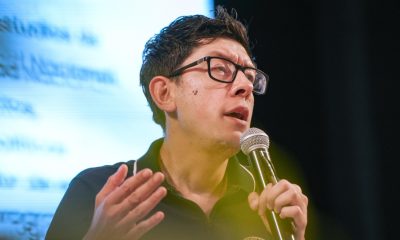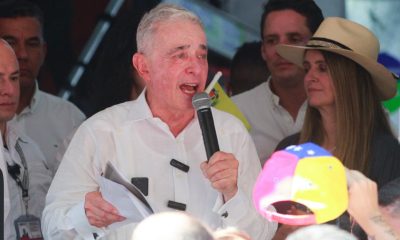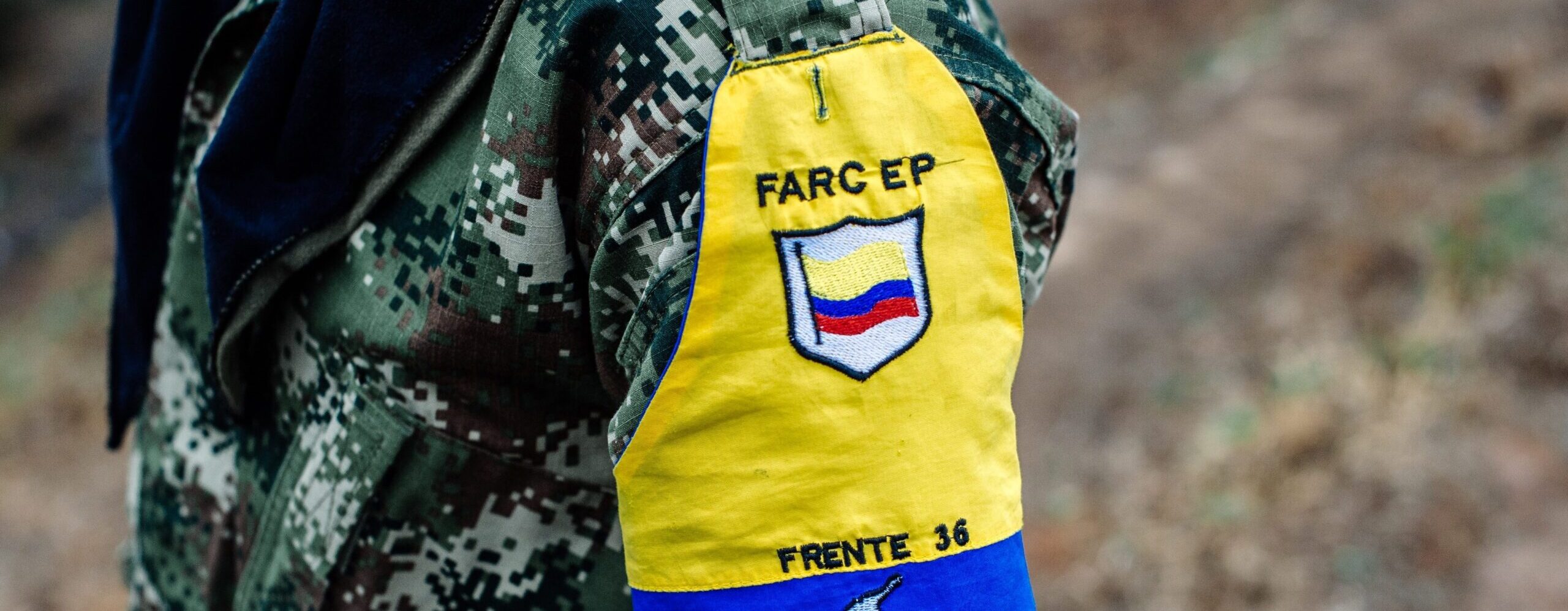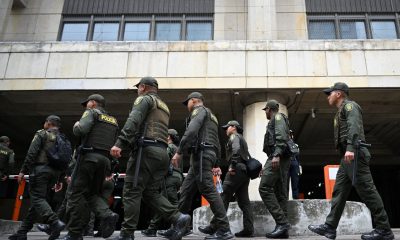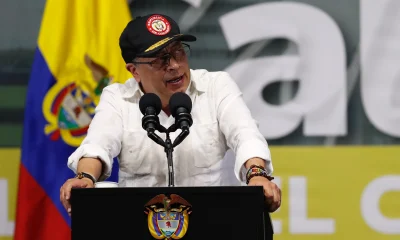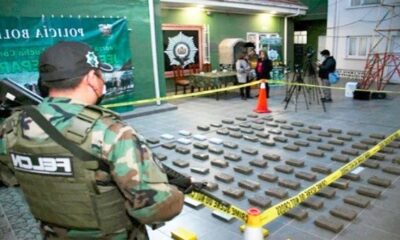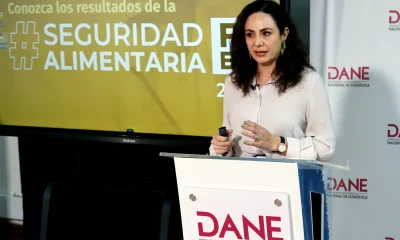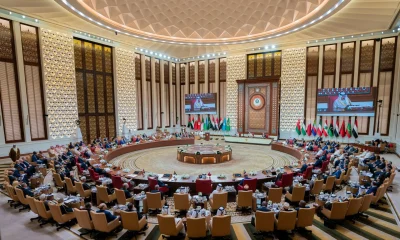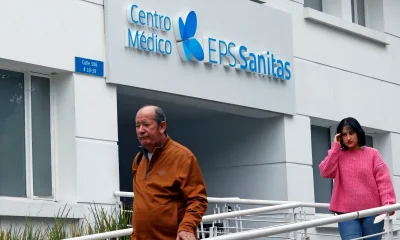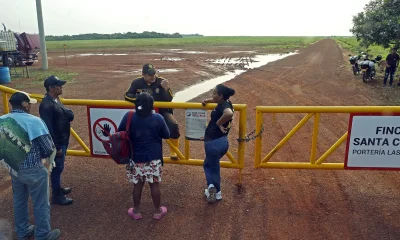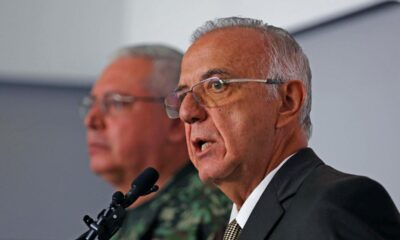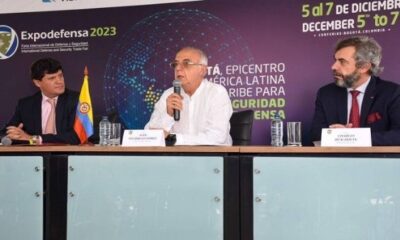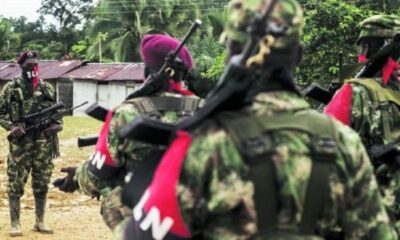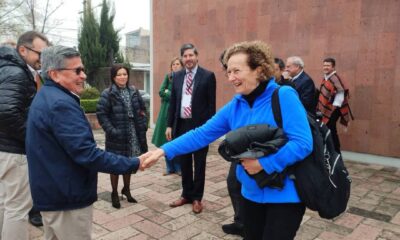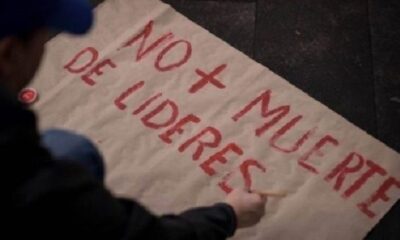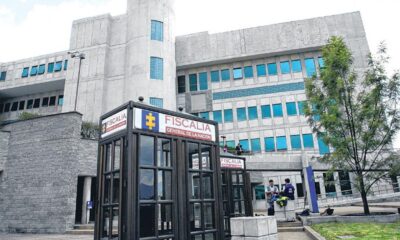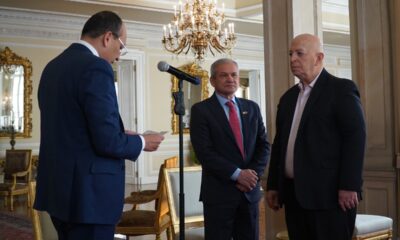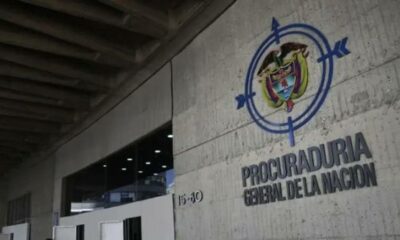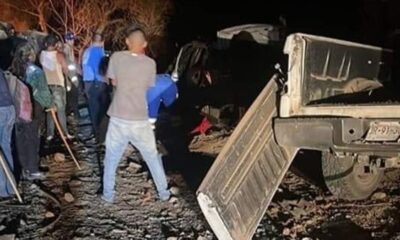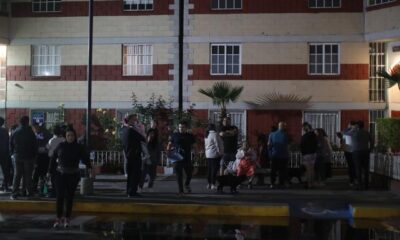International
Mexican cartels: the hidden hand behind Colombia’s drug trade
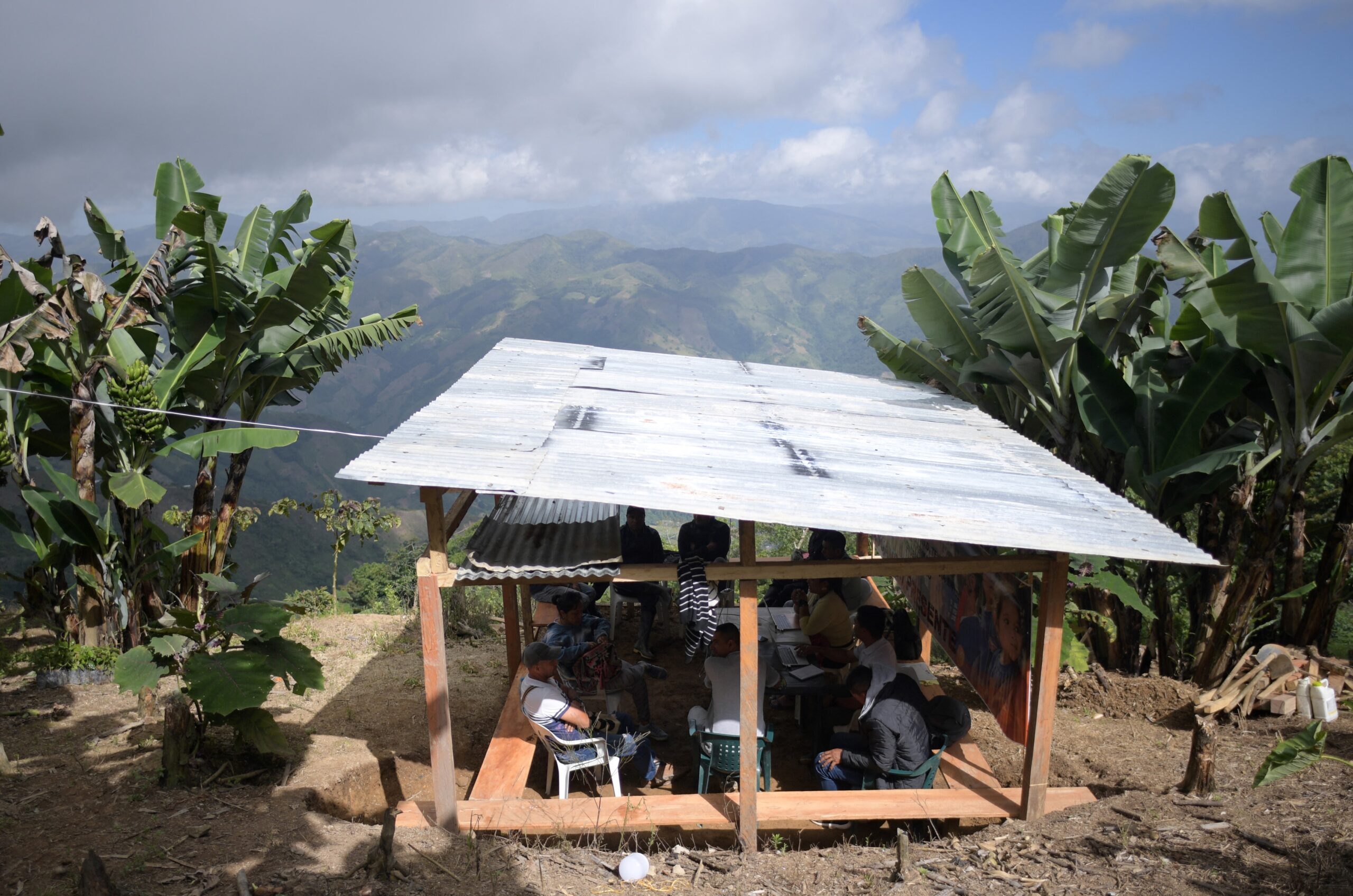
January 16 | By AFP | Diego Legrand and Hector Velasco |
A wide-brimmed hat, leather bandolier, rifle in hand: Colombian drug lord Pablo Escobar used to dress up as a Mexican revolutionary hero for amusement.
But during his heyday as the world’s most wanted drug baron, he could not have imagined that Mexicans — then mainly smugglers for the Colombians — would end up running the empire he had constructed with so much bloodshed.
From being a mere stop on the smuggling route to the United States in the 1980s and 1990s, Mexican cartels have largely taken over the business, financing drug manufacturing in Colombia and controlling shipments to the United States via Central America.
“Power has shifted from the Colombians to the Mexicans, because those who control the most profitable parts of the business have changed,” Kyle Johnson, an expert at the Conflict Responses Foundation in Bogota, told AFP.
For more than a decade in the 1980s, Escobar and his feared Medellin cartel dominated global cocaine trafficking with his rivals of the Cali cartel, which in turn controlled the trade after the drug lord was shot dead by police in 1993.
Forty years of America’s “war on drugs” later, Colombia remains the world’s biggest cocaine producer, and the United States its biggest consumer.
A kilogram (2.2 pounds) of cocaine, which sells for just under $1,000 in Colombia, fetches as much as $28,000 in the United States and about $40,000 in Europe, according to the specialized site InSight Crime.
But the fall of the kingpins — first Escobar, then the Cali cartel’s Rodriguez Orejuela brothers — had an unintended consequence.
Colombian drug traffickers “atomized” into smaller groups that are more difficult to trace and eradicate.
‘The Invisibles’
It also left a void for Mexican cartels to fill.
In the 1990s, “there was a sort of division of labor: the Colombians produced and packed the coca, moved it to the Pacific or Caribbean coast or the ports (while) the transfer to Mexico… or the United States was done by Mexicans,” retired police general and former vice president Oscar Naranjo told AFP.
Today, the Mexicans control several aspects of the business, shipping cocaine directly from Colombia to the United States in speed boats or semi-submersibles.
With the US market largely in Mexican hands, Colombian groups have increasingly set their sights on Europe.
In the last three years, drugs from the South American country have been arriving by cargo ship “in very large quantities” in Spain, Belgium or the Netherlands, said Esteban Melo, coordinator of the UN Office on Drugs and Crime in Colombia.
The Mexican traffickers are known in Colombia as “The Invisibles,” said Melo.
For “financing… they do not need to be visible, they do not need a whole armed body behind them because they are not involved in the territorial disputes for the trafficking business,” he explained.
There are about 40 Mexicans in Colombian jails today, mainly on drug trafficking charges, according to Colombia’s human rights ombudsman.
Many are presumed emissaries of Mexico’s powerful Sinaloa and Jalisco New Generation cartels, most of them arrested in areas from where cocaine is shipped via the Pacific, the Caribbean and from the border with Venezuela.
‘More powerful’
“Mexican cartels today control everything from (cultivation of) the coca leaf to the sale of cocaine on a New York street corner,” then-senator, now-President Gustavo Petro said in August 2019.
These groups, he said, are “more powerful” than those led by Escobar or the Rodriguez Orejuela brothers.
Experts believe Mexican organizations may even be financing Colombian armed groups — at a deadly price — to capture drug routes formerly controlled by FARC guerrillas who disarmed under a peace deal in 2017.
The new government under Petro, Colombia’s first-ever leftist president, has an ambitious plan to extinguish the continent’s last internal armed conflict.
Petro is taking a carrot rather than stick approach, offering benefits to organizations that renounce violence and “peacefully” dismantle the drug business — including non-extradition to the United States.
Though weakened, Colombia’s drug groups still exact a heavy toll on a country that has seen six decades of internal conflict.
Last year, the Gulf Clan cartel — Colombia’s biggest — launched a violent retaliation for the extradition of its leader Dairo Antonio Usuga, known as “Otoniel,” to the United States on trafficking charges.
Three civilians, three soldiers and two police officers were killed.
If the Colombian drug networks accept the offer to lay down arms, “Mexican cartels… will face their biggest challenge to cocaine production and supply since the United States launched the global war on drugs in 1971,” the Colombian Association of Retired Armed Forces Officers has predicted.
International
Paraguay summons Brazilian ambassador over Itaipú espionage scandal
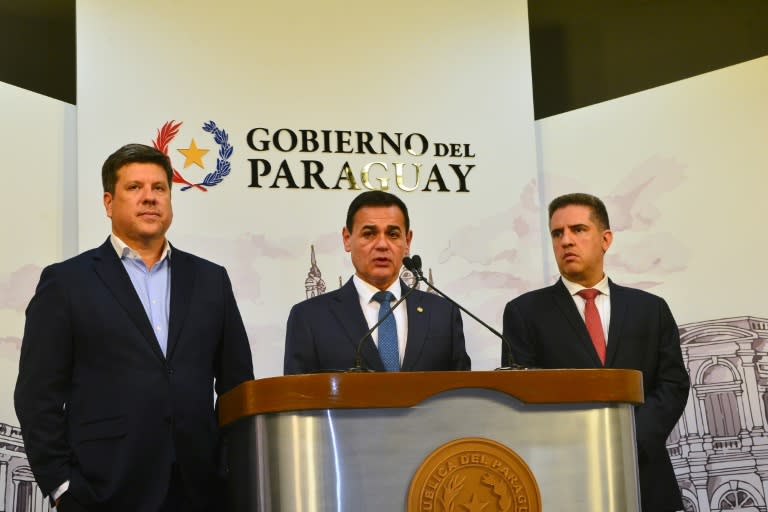
Paraguay summoned the Brazilian ambassador in Asunción on Tuesday to demand “explanations” and called its own representative in Brasília for consultations following Brazil’s acknowledgment of an espionage operation. The Brazilian government, led by President Luiz Inácio Lula da Silva, attributed the operation to the previous administration.
The surveillance effort aimed to uncover Paraguay’s position in now-suspended negotiations with Brazil regarding the pricing of electricity from the binational Itaipú hydroelectric plant, according to reports in the Brazilian press.
The Brazilian government “categorically denied any involvement in the intelligence operation,” stating in a Foreign Ministry communiqué on Monday that the espionage was carried out under former President Jair Bolsonaro’s administration (2019-2023).
“The operation was authorized by the previous government in June 2022 and was annulled by the interim director of the (state intelligence agency) ABIN on March 27, 2023, as soon as the current administration became aware of it,” Brazil’s government asserted.
Paraguay’s Foreign Minister Rubén Ramírez announced that Brazilian Ambassador José Antonio Marcondes de Carvalho was summoned “to provide detailed explanations” regarding the operation. Additionally, Paraguay recalled its diplomatic representative in Brasília “to report on aspects related to the intelligence activity conducted by Brazil regarding Paraguay’s government affairs.”
International
Elon Musk to step down as government advisor, per Trump insiders
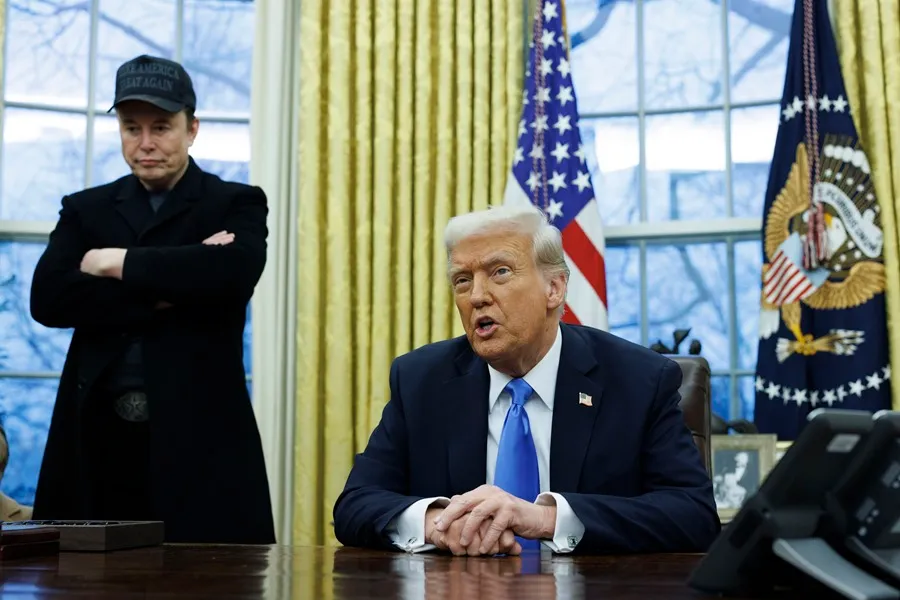
President Donald Trump has informed his inner circle that Elon Musk will be stepping down from his role as a government advisor, according to a report by Politico today.
Citing three individuals close to Trump, Politico states that the president is pleased with Musk’s leadership at the Department of Government Efficiency (DOGE), where he has implemented significant budget cuts. However, both have agreed that it is time for Musk to return to his businesses and support Trump from a different position outside the government.
A senior administration official told Politico that Musk will likely maintain an informal advisory role and continue to be an occasional visitor to the White House. Another source warned that anyone thinking Musk will completely disappear from Trump’s circle is “deluding themselves.”
According to the sources, this transition is expected to coincide with the end of Musk’s tenure as a “special government employee,” a temporary status that exempts him from certain ethics and conflict-of-interest regulations. This 130-day period is set to expire in late May or early June.
International
Milei vows to make Argentina so strong that Falkland Islanders “choose” to join

Argentine President Javier Milei reaffirmed his country’s claim over the Falkland Islands (known as the Islas Malvinas in Argentina) and praised the role of the nation’s armed forces during a ceremony marking the “Veterans and Fallen Soldiers of the Malvinas War Day,” commemorating 43 years since the 1982 conflict with the United Kingdom.
Argentina continues to assert sovereignty over the islands, arguing that Britain unlawfully seized them in 1833.
“If sovereignty over the Malvinas is the issue, we have always made it clear that the most important vote is the one cast with one’s feet. We hope that one day, the Malvinas residents will choose to vote with their feet and join us,” Milei stated.
“That is why we aim to become a global power—so much so that they would prefer to be Argentine, making deterrence or persuasion unnecessary. This is why we have embarked on a path of liberation, working to make Argentina the freest country in the world and once again the nation with the highest GDP per capita on the planet,” he added.
-

 Central America3 days ago
Central America3 days agoU.S. Homeland Security Secretary urges Mexico to strengthen Guatemala border
-

 Central America3 days ago
Central America3 days agoPanama grants Martinelli 72-hour extension to travel to Nicaragua
-

 International2 days ago
International2 days agoParaguay summons Brazilian ambassador over Itaipú espionage scandal
-

 Central America4 days ago
Central America4 days agoPanama police clarifies that Interpol alert for Martinelli is still pending
-

 International3 days ago
International3 days agoTrump urges Putin to reach peace deal
-

 International4 days ago
International4 days agoDeportation flight lands in Venezuela; government denies criminal gang links
-

 Sports2 days ago
Sports2 days agoFilipe Luis debuts as coach in Copa Libertadores with Flamengo
-

 Central America2 days ago
Central America2 days agoGuatemalan police officer killed in mob riots over baby kidnapping
-

 International2 days ago
International2 days agoElon Musk to step down as government advisor, per Trump insiders
-

 Sports2 days ago
Sports2 days agoVenezuela investigates 18 baseball players seeking asylum in Spain
-

 International2 days ago
International2 days agoMilei vows to make Argentina so strong that Falkland Islanders “choose” to join
-

 International2 days ago
International2 days agoICE agent’s arrest of suspect sparks controversy in Boston
-

 International2 days ago
International2 days agoÓscar Arias: Trump’s trade policies are a step backward


















